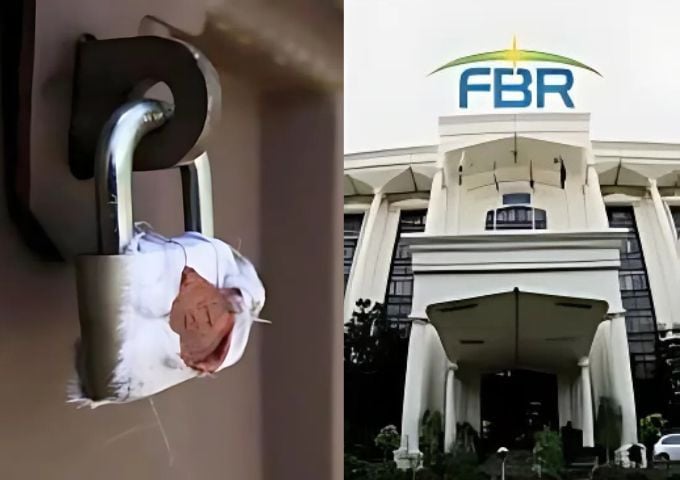PTBP Web Desk
In an assertive move to bolster tax compliance and curb the issuance of fake invoices, the Regional Tax Office (RTO) of the Federal Board of Revenue (FBR) in Islamabad has taken stringent action against five well-known restaurants. This crackdown is part of a broader initiative to integrate Tier-1 retailers and restaurants into the tax network through an advanced Point of Sale (POS) invoicing system.
Following reports from vigilant citizens and consumers about the issuance of counterfeit invoices, the FBR sealed these establishments after verifying the discrepancies via their POS tracking software. A team led by the Deputy Commissioner of RTO Islamabad not only shut down these outlets but also levied a cumulative penalty of Rs.1.5 million.
The heart of this operation lies in the recently launched POS invoicing system, aimed at streamlining tax collection. This system tracks transactions in real-time, making it easier to identify and penalize fraudulent activities.
To encourage public participation in this anti-fraud campaign, FBR introduced the Point of Sales Prize Scheme on October 25. This scheme initially targets Tier-1 restaurants in Islamabad, with plans for a nationwide rollout by the month’s end. Consumers who report fake receipts via the Tax Asaan App to FBR stand a chance to win cash rewards. After verification of the reported fake invoices through a set procedure, the rewards are directly transferred to the bank accounts of the informants, reinforcing community involvement in tax enforcement.
By ensuring that taxes are correctly collected from all transactions, this initiative aims to enhance revenue collection, which is crucial for the national economy. The move is expected to increase the tax base by bringing more businesses into the formal sector. It sends a strong message aimed at discouraging the culture of issuing fake invoices, underscoring a shift towards greater transparency and accountability in business practices, particularly in the hospitality sector.
The FBR’s strategy involves not just punitive measures but also incentivizing honesty. By rewarding those who report violations, FBR hopes to cultivate a culture of tax compliance from the grassroots level. The use of technology, like the POS system and the Tax Asaan App, demonstrates FBR’s commitment to leveraging digital solutions for improving tax collection mechanisms. This technological approach not only aids in enforcement but also in monitoring and ensuring the integrity of tax records.
The success of this initiative in Islamabad sets a precedent for its expansion across other cities, targeting all Tier-1 retailers. This phased approach allows FBR to refine its strategies based on initial outcomes before a full-scale national implementation. Alongside enforcement, there’s a need for public education on the benefits of compliance and the mechanisms in place to report fraud. This dual strategy of enforcement and awareness could significantly transform how businesses view and manage their tax obligations.
The action against these five restaurants in Islamabad is more than just a crackdown; it’s a statement of intent by the FBR to clean up the tax ecosystem. By integrating enforcement with incentives for consumers, the FBR is attempting a holistic approach to tax compliance. This initiative not only aims to recover lost revenue but also to foster a business environment where transparency is the norm rather than the exception. As this scheme expands, it will be interesting to observe its impact on tax culture and compliance rates across Pakistan.



